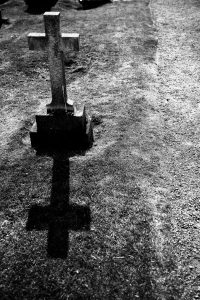A claim from wrongful death is filed typically by a representative of the deceased victim’s estate on behalf of survivors with a direct relationship with the victims. However, the survivors entitled to file a claim tend to vary across states.
When an individual passes away as the result of someone else’s wrongful action or negligence, his or her family members can file a lawsuit, categorized as wrongful death, against the person responsible for the death. These claims are usually filed to compensate for financial as well as other losses resulting from the death of a family member. Though wrongful death laws tend to vary across states, these lawsuits are generally filed by a representative of the estate of the deceased person, on behalf of his or her family members.
Understanding Wrongful Death Lawsuit
In the past, it was not possible for any individual to file a civil lawsuit for someone else’s death. However, a person responsible for wrongful death could face legal consequences as per criminal procedures. This meant that there was no legal provision for the decedent’s family members to claim monetary damages resulting from the death. Though unintended, as a consequence of this rule, the perpetrators were financially better off if a person injured by him or her passed away before the civil trial.
These days, however, almost every American state has created legal provisions to overcome the limitation of the old rule. Now, the decedent’s estate or a representative can sue for civil damages as per wrongful death statutes. This claim includes sorrow, grief, and mental sufferings resulting from the death of a family member.
Applicability of Wrongful Death Claim:
A wrongful death claim arises when a victim with a valid claim for personal injury loses his or her life because of the wrongful action of the defendant. Some typical scenarios where a wrongful death claim can be filed are
- When the victim is killed by an intentional act.
- When the victim passes away because of medical malpractice.
- When the victim dies in a car accident as a result of negligence.
In addition to these common situations, almost any kind of personal injury can lead to a claim for wrongful death. One notable exception, however, exists in the form of work injuries leading to death. These cases are handled exclusively by the worker’s compensation system.
What should be proven?

In a wrongful death claim, to hold the defendant liable, the burden of proof lies with the plaintiffs. In simple words, it means that the plaintiffs must prove that the defendant owed a duty of care to the victim and the breach of this duty was directly and proximately responsible for the death of the victim. It also needs to be proven that the death of the victim caused damages and the plaintiff is making an attempt to recover the same.
Who Can File a Claim?
A claim from wrongful death is filed typically by a representative of the deceased victim’s estate on behalf of survivors with a direct relationship with the victims. However, the survivors entitled to file a claim tend to vary across states.
In all American states, a wrongful death action can be brought by a spouse on behalf of her or his deceased spouse. A wrongful death action can also be initiated by parents of minors if one of their children is killed. Also, over the death of a parent, minors can collect compensation. Usually, getting a legal remedy for these cases becomes relatively harder if the familial relationship is distant. However, in some states, a wrongful death claim can be brought even by a romantic partner because marriage isn’t a requirement there.
Wrongful Death Damages:
Mentioned below are some loss categories for which compensation may be available to survivors.
- Pre-death “pain and suffering” of the survivor.
- The medical treatment costs incurred by the deceased victim prior to death as a result of the injury.
- Burial and funeral costs.
- Loss of expected income of the deceased person.
- Loss of any inheritance caused by death.
- Value of the services that could have been provided by the deceased person.
- Loss of nurturing, guidance, and care that the deceased person could have provided.
- Loss of companionship and love.
If you want to find out more about wrongful death claims or file a claim for a deceased family member, seek help at Uvalle Law Firm.


Join the conversation!